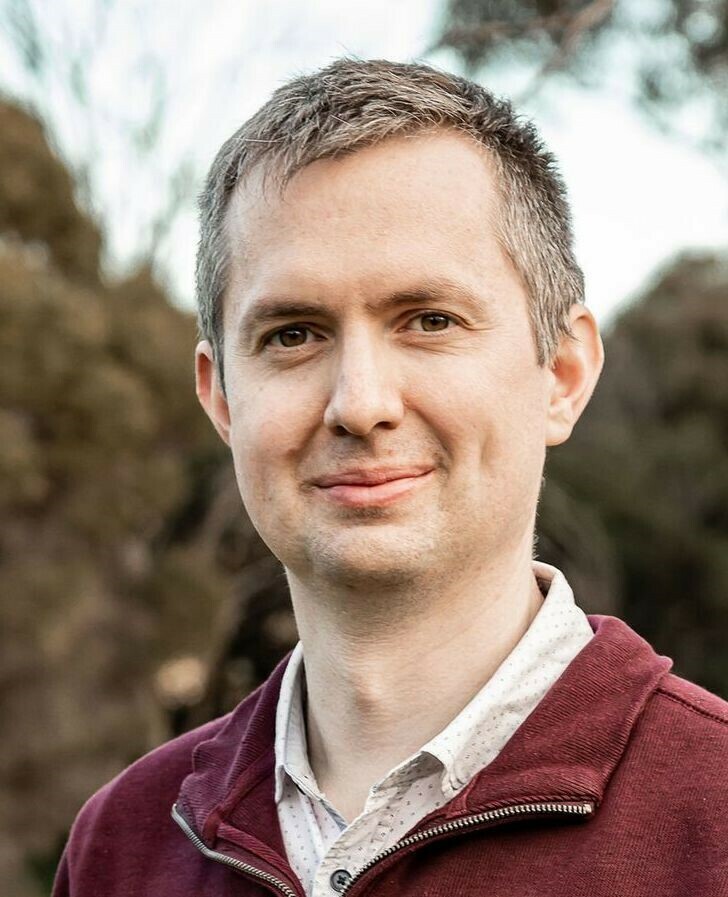Contact Details
Dr. Stephen Blake is an established cancer immunology researcher with expertise in immunotherapy, systems immunology, and host–microbiome interactions in cancer. He is an academic affiliate of the College of Medicine and Public Health at Flinders University and a senior researcher within the Precision Cancer Medicine program at the South Australian Health and Medical Research Institute (SAHMRI), Australia.
Dr Blake’s research focuses on how immune responses to cancer therapies are shaped by tumour, host, and gut microbiota factors, with the goal of improving therapeutic efficacy while minimising immune-related toxicity. His work bridges basic immunology and translational cancer research, addressing clinically relevant questions that inform next-generation precision oncology strategies and improve recovery from treatment.
He completed his PhD at the University of Adelaide, investigating immune signalling pathways in normal and malignant cells, followed by postdoctoral appointments at the University of Queensland Diamantina Institute and QIMR Berghofer Medical Research Institute. During this period, Dr Blake built technical depth in experimental immunology and established collaborative networks underpinning his independent research profile. Since joining SAHMRI, he has progressed to senior research fellow, assuming increasing responsibility for conceptual leadership, project direction, and collaboration.
Dr Blake has authored over 45 publications in leading immunology and cancer journals including Nature, Nature Reviews Immunology, Cancer Discovery, and Cancer Research. His work has been cited more than 4,800 times and includes influential studies shaping understanding of immune–microbiome interactions and informing immunotherapy policy. He is a co-inventor on a US patent (17/779,908) describing microbiome-based approaches to reduce immune agonist toxicity.
Dr Blake has also secured numerous nationally competitive grants as CI from funding bodies including NHMRC, MRFF, Tour de Cure and the Leukemia Foundation that have supported preclinical and translational studies to evaluate projects investigating the microbiota role in toxicity and efficacy of cancer treatments, development of novel bacterial based cancer therapies and mRNA-based cancer vaccines therapies for colorectal cancer. He has also attracted commercial research funding to undertake research partnerships with several biotechnology companies.
Dr Blake has a strong national and international research profile and is a regular speaker at the Australian Society for Immunology Annual Scientific Meeting, as well as national conferences, symposia, and specialist workshops. In addition to direct research outputs, Dr Blake demonstrates leadership through mentoring and supervision of early-career researchers and students, contributing to the development of technical skills, experimental design, and scientific independence within his teams.
Qualifications
Ph. D., The University of Adelaide, 2009.
Bachelor of Science (Honours), The University of Adelaide, 2004.
Bachelor of Science, The University of Adelaide, 2003.
Key responsibilities
Dr Blake’s future research vision is to establish a competitive program integrating immunology, microbiome-host interactions and synthetic biology to that will enhance treatment outcomes and improve patient recovery from treatment.
Key Research Interests
- Cancer Immunotherapy: Understanding mechanisms of anti-tumour immune responses and improving therapeutic efficacy.
- Immune–Microbiome Interactions: Investigating how the gut microbiota influences treatment response, toxicity, and recovery from treatment.
- Synthetic biology: Developing novel immune-modulating therapies for delivery via bacterial or mRNA-based vectors as new cancer treatments.
- Systems Immunology: Integrating multi-level immune, microbial, and tumour data to inform next-generation cancer therapies.
Find out more about Stephen's research outputs, qualifications and affiliations on the
SAHMRI Researcher portal

